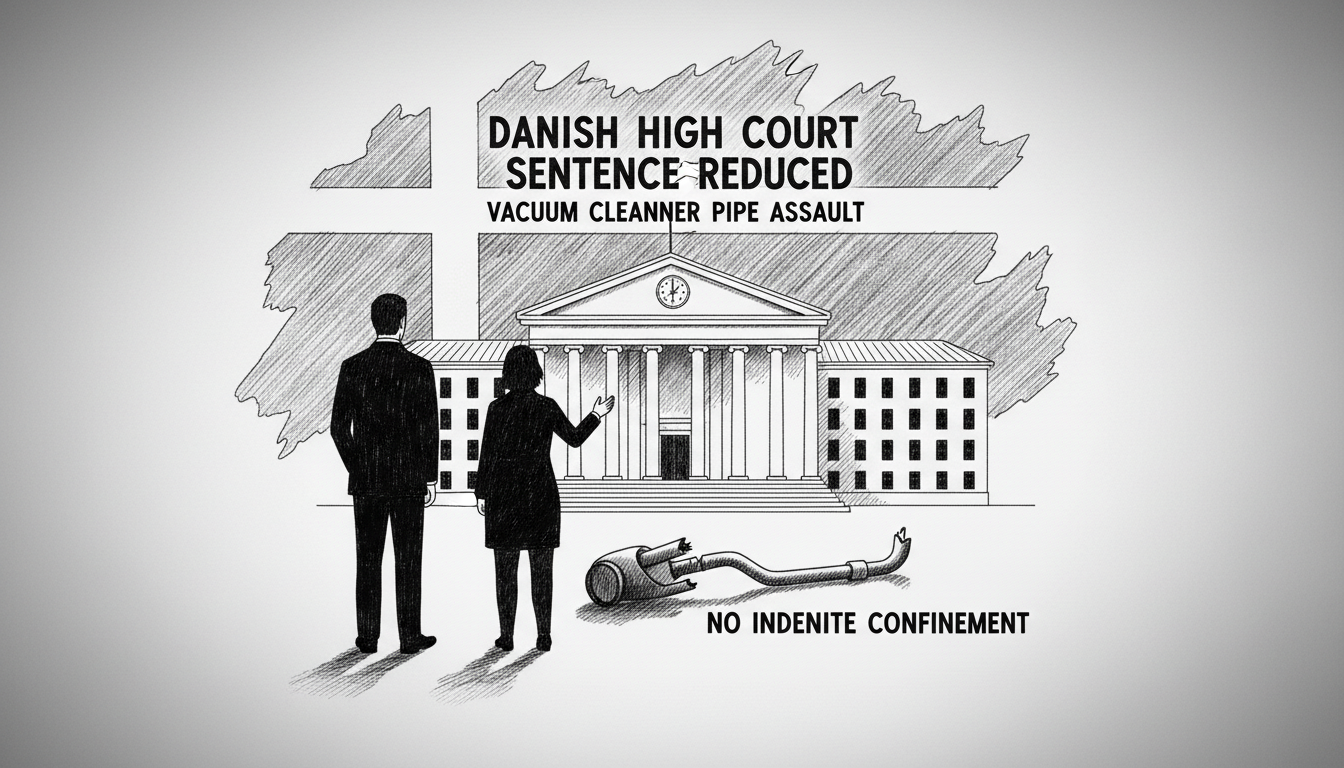A Danish high court has overturned a previous ruling that would have placed a 53-year-old man in preventive detention for a violent assault involving a vacuum cleaner pipe. The Vestre Landsret court instead sentenced the man to one year and three months in ordinary prison on Wednesday.
The decision means the man avoids being labeled as permanently dangerous to society. His defense lawyer Jan Schneider expressed satisfaction with the outcome, stating it aligns with standard legal practice in Denmark.
This case highlights Denmark's unique legal concept of 'forvaring' or preventive detention. This special measure allows courts to imprison individuals indefinitely if they pose a continuing threat to public safety. The system represents a balance between punishment and protection that differs from many other European legal frameworks.
The assault occurred in March when the man attacked an acquaintance in the Aarhus suburb of Tilst. Prosecutors alleged he used additional objects during the assault, but the defense maintained no evidence supported these claims.
The prosecution's case relied partly on an assessment from the Danish Medico-Legal Council. This independent body provides expert opinions to Danish courts on defendants' mental state and dangerousness.
The defendant's criminal history includes a previous conviction for fatally stabbing another person in Aarhus. This background made the preventive detention question particularly relevant to the court's deliberations.
Court documents reveal the judges disagreed on the appropriate sentence. A small minority supported the preventive detention option, showing the complexity of assessing future dangerousness.
Denmark's legal system operates with district courts as the first instance, followed by two high courts that handle appeals. The Eastern High Court initially heard this case before the Western High Court's review.
Legal experts note that preventive detention remains controversial in Scandinavian jurisprudence. While it protects society from dangerous individuals, it raises questions about rehabilitation and proportional punishment.
The case demonstrates how Danish courts weigh past criminal behavior against current offenses. The decision suggests the court found the man's current actions, while serious, didn't meet the high threshold for indefinite confinement.
International observers often find Denmark's preventive detention system noteworthy. It represents one approach to handling repeat violent offenders that differs from the sentencing structures in many common law countries.
The man will now serve a fixed prison term with potential for supervised release. The sentence allows for rehabilitation and eventual reintegration, unlike the open-ended nature of preventive detention.
This ruling comes amid ongoing debates in Denmark about balancing public safety with prisoner rights. The court's decision reflects careful consideration of both the assault's severity and the defendant's potential for future violence.

